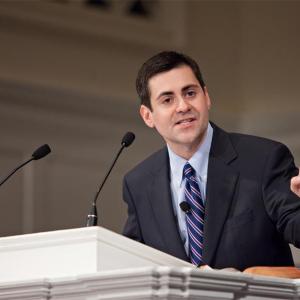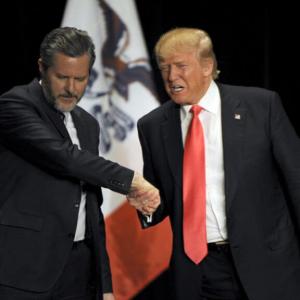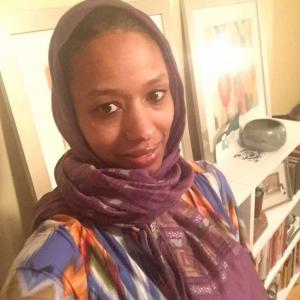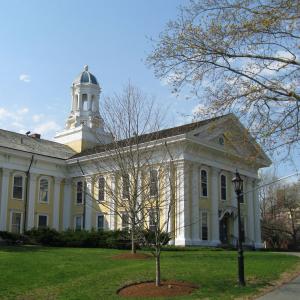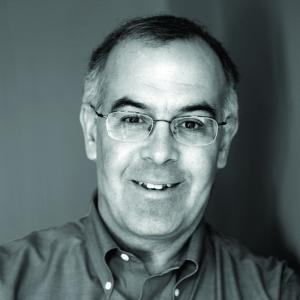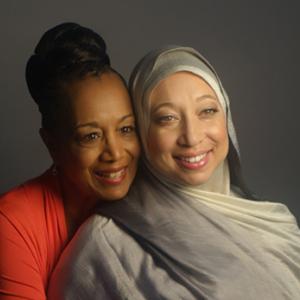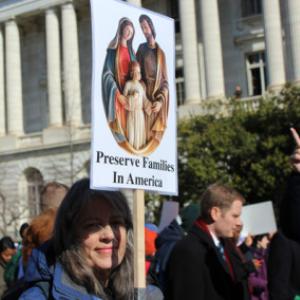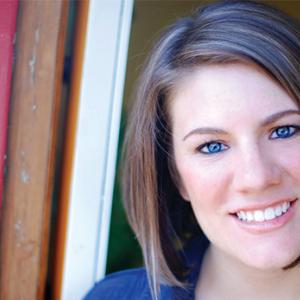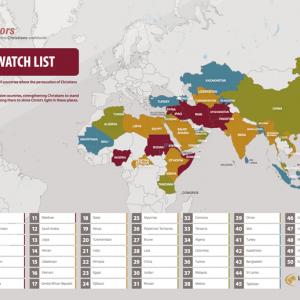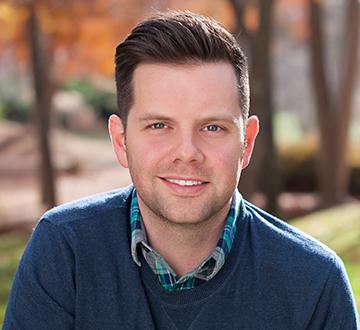
Jonathan Merritt is senior columnist for Religion News Service and has published more than 1,000 articles in respected outlets such as USA Today,The Atlantic, National Journal, Christianity Today, The Washington Post, and CNN.com. He is author of Jesus is Better Than You Imagined and A Faith of Our Own: Following Jesus Beyond the Culture Wars. His first book, Green Like God: Unlocking the Divine Plan for Our Planet, was called "a must-read for churchgoers" by Publisher's Weekly.
As a respected Christian voice, Jonathan regularly contributes commentary to television, print, and radio news outlets. Jonathan has been interviewed by ABC World News, NPR, CNN, PBS,Fox News, Slate, Politico, and The New York Times. He serves on the advisory board for Religion News Service, America's largest provider of news about religion and spirituality.
Jonathan first entered the public eye when a classroom epiphany prompted him to organize a national coalition of Christian leaders who care about the creation. Since then, he's been on the front lines of pressing cultural conversations from poverty to orphan care. He is a member of the national board of directors for Bethany Christian Services, America's largest adoption agency. Outreach magazine recently named Jonathan one of 30 influencers reshaping Christian leadership.
Jonathan has become a sought after speaker by colleges, seminaries, churches and conferences on cultural and religious issues. He holds a Master of Divinity from Southeastern Baptist Theological Seminary and a Master of Theology from Emory University’s Candler School of Theology.
Jonathan occasionally utilizes a research assistant to facilitate interviews, but the final questions and content are his. He resides in Brooklyn.
Posts By This Author
Southern Baptists: Attacking Russell Moore Is a Mistake
When some claim that Southern Baptists are partisan hacks, Moore finds a way to challenge the Republican establishment while holding the line on cornerstone conservative issues such as abortion and gay marriage.
Jerry Falwell Jr. Accepts Advisory Position from Trump, Will 'Influence Education Policy'
Liberty University President Jerry Falwell Jr. believes that Donald Trump “will become America’s greatest president since Abraham Lincoln.”
But that wasn’t enough to persuade him to accept Trump’s offer to become secretary of education, he said.
Falwell told Religion News Service the decision was due to concerns for the health of his family and the university he leads.
Can Wheaton College Still Claim to Be the 'Harvard of Evangelicalism'?
Wheaton College in Illinois announced on Tuesday that they had put Hawkins on administrative leave for her “same God” comments. In an official statement, college administrators expressed concern over the “theological implications” of her statements and promising a full review.
Founded in 1860, Wheaton has long been considered a fairly open-minded institution within evangelicalism. Science professors can teach evolution, government professors need not support conservative political theories, and students don’t have to worry about strict dress codes or stringent curfews like students at more fundamentalist colleges. In 2003, it eased bans on alcohol consumption and dancing.
But a string of politically charged events, culminating in Hawkins’ suspension, place Wheaton at an important crossroads. The school must now decide what kind of evangelical college they wish to be.
Beyond Bathrooms: Christians Need to Get a Clue on Transgender Issues

Image via Marshall Childs / RNS
Christians — particularly those of the more conservative variety — often oppose accommodations for transgender persons. But these believers are having a very important conversation in the wrong direction. When trying to understand transgender issues, Christians should start with the personal, not political. When Christians begin by committing to political goals rather than educating themselves on the complicated, sensitive nuances of this matter, they often come off looking privileged, mean, or just flat-out clueless.
But transgender issues are bigger than so-called bathroom bills and similar legislation. Society is beginning to see these issues as personal matters that affect the real lives of real people with real hurts.
A few Christians out there are, thankfully, trying to think deeply about transgender people. Mark Yarhouse is a professor at Regent University School of Psychology and Counseling and author of Understanding Gender Dysphoria: Navigating Transgender Issues in a Changing Culture. Megan DeFranza is a visiting researcher at Boston University’s School of Theology and author of Sex Difference in Christian Theology: Male, Female, and Intersex in the Image of God. Here we discuss the complexity of transgender issues often overlooked by Christians.
The Specter of 'Normalization'
In the fight over gay rights, conservative Christians have a new enemy. No, it isn’t a politician or activist or organization. It isn’t a noun at all, but rather a verb: normalize.
In Albert Mohler’s forthcoming book, “We Cannot Be Silent : Speaking Truth to a Culture Redefining Sex, Marriage, & the Very Meaning of Right & Wrong,” the president of the flagship Southern Baptist Theological Seminary in Louisville, Ky., discusses the normalization of same-sex relationships a whopping 39 times.
“The normalization of homosexual relationships and the legalization of same-sex marriage” is, in Mohler’s words, “the debate of greatest intensity of our time.”
Why Gay Couple Barred from Leading Worship Will Keep Singing with Hillsong Church

Josh Canfield and Reed Kelly previously competed on the reality TV show “Survivor.” Photo courtesy of Monty Brinton / CBS ©2014 CBS Broadcasting Inc. / RNS
Canfield and Kelly have decided to keep singing each Sunday at Hillsong, despite the restrictions. They recognize that the decision they’ve made is not one that every person in their position should make. But they believe it is the right one for them.
“If every gay person leaves their church because they have been treated poorly, nothing will change,” Canfield said.
“They still want us, and we feel called to stay. And we’re telling all our gay friends at Hillsong to do the same.”
Interview: Russell Moore on His Past Life as a Democrat, Religious Liberty, and Franklin Graham

Russell Moore, right, leads a June 9, 2014, panel discussion as David Platt, president of the Southern Baptist Convention’s International Mission Board, listens. Photo via Adelle M. Banks / RNS
Russell Moore, president of the Ethics and Religious Liberty Commission of the Southern Baptist Convention, is in the spotlight after interviewing former Florida Gov. Jeb Bush and Florida Sen. Marco Rubio at an evangelical conference in Nashville on Aug. 4. Moore spoke with Religion News Service’s Jonathan Merritt about a range of pressing issues and the message of Moore’s new book, Onward: Engaging the Culture Without Losing the Gospel.
Southern Baptists Cozy Up to GOP After Pulling Back

Photo via REUTERS / Hans Deryk / RNS
When it comes to political partisanship in the 2016 presidential race, it might be said that Southern Baptists have taken one step forward and two steps back.
The Ethics and Religious Liberty Commission, the public policy arm of the Southern Baptist Convention, announced in a press release that its president Russell Moore would be interviewing Republican candidates Jeb Bush (live) and Marco Rubio (via video) before 13,000 attendees at the denomination’s missions conference on August 4. Leading candidates from each major party were invited, the release states, but only Rubio and Bush accepted.
What Does It Take to Forgive Someone like Dylann Roof?
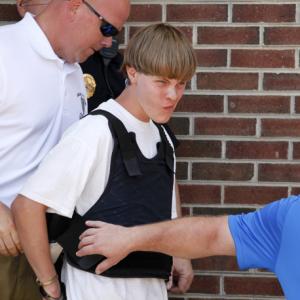
Police lead suspected shooter Dylann Roof, 21, into the courthouse in Shelby, North Carolina, on June 18, 2015. Photo via REUTERS / Jason Miczek / RNS
What does it take to forgive someone like Dylann Roof? How does one muster the courage, the conviction, the moral fiber to grant such a gift to someone who has already taken so much? To serve a feast of forgiveness to a person who hasn’t even ordered a single serving?
The story of Collier’s astounding forgiveness reminds me of another ancient one. Baking in the sun, an innocent Nazarene named Jesus hangs from a Roman cross. He’s losing blood at a rapid rate. His weeping mother is crumpled at his feet, adding emotional agony to his unbearable physical torment. Jesus opens his mouth to speak, but what will he say? Will he curse his executioners or cry out against those complicit in the broken trial that landed him there in the first place?
Madeleine L’Engle’s Foundation Awards Grant to LGBT Group at Wheaton College
The foundation of Madeleine L’Engle, the late National Book Award-winning author of A Wrinkle in Time, has awarded OneWheaton, an independent community of LGBT students and alumni from Wheaton College, a $5,000 grant.
OneWheaton is committed to affirming LGBT students but is not officially recognized by the prominent evangelical school, which can expel students caught in homosexual behaviors.
The group plans to use the money to fund public discussions and forums about LGBT issues and evangelical culture.
Shepherds or Shamers? The Rise of Church Discipline in America
While there are no reliable figures, some church followers think the number of congregations using “church discipline” is growing among conservative congregations. As more cases come to light, they raise questions about the biblical basis and legal implications of such practices. Are these church shepherds just doing their best to care for their flocks, or are they crossing a line by shaming and shunning their so-called sinners?
Meet the Gay Celibate Catholic Who's Shaking Up the Sexuality Debates
A few decades ago, there were two options for people who wanted to follow Jesus but were attracted to the same gender: They could either throw off religion and embrace their sexuality, or they could remain in the faith and hide their sexual orientations. Today, there are other options. Some — like Matthew Vines and David Gushee — are attempting to make a biblical case for same-sex relationships. Others — such as Julie Rodgers and Wesley Hill — are leading a movement of celibate gay Christians.
Among the second group, Eve Tushnet has risen to prominence. She has a popular blog hosted by the Patheos Catholic Channel and has created a stir with her book Gay and Catholic: Accepting My Sexuality, Finding Community, Living My Faith. We asked her why it is important to her to self-identify as a lesbian and whether she’s missing something about the uniqueness and importance of erotic intimacy.
Evangelicals Want to Follow the Global South on Gays. They Should Be Careful What They Ask For
If religious conservatives are truly awakening to the need to dialogue with global Christians, they need to be consistent. It doesn’t make sense to exploit non-Western perspectives on LGBT rights but refuse to hear those same voices on matters such as nationbuilding, war, immigration, environmental policy, and foreign aid.
The inconsistency leads me to believe that these calls are more about political posturing than a desire to really listen to our global brothers and sisters.
Q&A: David Brooks on Character, Sin, and Rumors About His Religious Journey
Brooks’ new book, The Road to Character, traces human virtue throughout the centuries, and then profiles a handful of “heroes of renunciation” who he believes serve as models of character. The book has sparked conversation about Brooks’ views on morality, theology, and even his own Jewish faith.
Brooks talked about society’s obsession with selfies, whether we’re too self-absorbed, and rumors about his own religious journey. Some answers have been edited for length and clarity.
Engaging Both Sides of the Church's Debate on Gays
Only a few dozen worshippers attend Boston’s Tremont Temple Baptist Church on a typical Sunday, but the historic church was once so prominent that legendary preacher Dwight L. Moody called it “America’s pulpit.”
This week, Tremont’s massive auditorium played host to influence once again when 1,300 Christian leaders gathered for the Q conference to discuss the most pressing issues facing their faith. There was no official theme, but one strand wove its way through multiple presentations and conversations: America’s — and many Christians’ — debate over sexuality.
While at least three other Christian conferences during the past year focused on same-sex debates, this is the only one to bring together both pro-gay speakers and those who oppose gay marriage and same-sex relationships.
“The aim of Q is to create space for learning and conversation, and we think the best way to do that is exposure,” said Q founder Gabe Lyons.
“These are conversations that most of America is having, and they are not going away.”
Which is not to say Lyons’ decision was without controversy.
Eric Teetsel, executive director of the Manhattan Declaration project that aims to rally resistance to same-sex marriage, urged Lyons to rescind his invitations to pro-gay panelists, whom he called false prophets professing to be Christians. Owen Strachan, president of the Council on Biblical Manhood and Womanhood, echoed the sentiment and tweeted that he was “shocked that @QIdeas features pro-‘gay-Christianity’ speakers.”
Lyons did not respond publicly to the criticism, but said such positions were rooted in fear.
Q&A: How Would You Respond If Your Christian Daughter Became a Muslim?
Alana Raybon was baptized as a child in the African Methodist Episcopal Church. She attended youth activities and vacation Bible school and even sang in the choir. But today, she wears a headscarf and worships Allah.
Her mother, Patricia, describes Alana’s conversion to Islam as “heartbreaking,” and yet, they’ve found a way to love each other despite the faith divide. They share their struggles in Undivided: A Muslim Daughter, Her Christian Mother, Their Path to Peace, a book that begs a vital question: how would you respond if your Christian child converted to Islam?
Religion News Service talked to them about their experience. Some answers have been edited for length and clarity.
Q: Alana, tell us the story behind your conversion.
Alana: I developed a love and reverence for God in church, but I couldn’t connect with the idea of the Trinity. I didn’t let my mother know about these feelings, and patiently waited to feel a connection to this concept. In my 20s, I began searching for spiritual enrichment and came upon the concept of Islamic monotheism — the idea of God being one, solely, without any associate. I became inspired to learn more about Islam and converted to the faith as a junior in college and called my mother to share the news.
Q: How did you react, Patricia?
Patricia: I was devastated. A daughter can call from college with all sorts of news — forgetting her mother is still dealing with her own life. In my case, my husband and I had hit a low point in our marriage, my widowed mother had come to live with us, my other daughter was closing a business, and my husband had a cardiovascular emergency. In all of that, Alana called from college to say, “Mom, I’m a Muslim.” Emotionally, I had run out of steam. So I thanked her for calling, asked how her classes were going and if her car was running OK. Then after a few minutes of such talk, we hung up. Looking back, it was my oddest reaction ever to a phone call.
Predictions of Evangelical Concessions on LGBT Rights Are Premature
Pardon the yawn.
The 1.8 million-member Presbyterian Church (USA) on March 17 voted to officially approve of same-sex marriage, an announcement that shouldn’t surprise anyone who has followed the mainline Protestant denomination’s trajectory. Perhaps a more substantial but less widely reported story was the decision by City Church, San Francisco’s largest evangelical congregation, to affirm LGBT couples.
Evangelicals are among the most stalwart opponents to LGBT marriage, but a number of evangelical congregations have publicly shifted their stance in the last year. Among them are Seattle’s Eastlake Community Church, Nashville’s GracePointe Church, Portland’s Christ Church, and New Heart Community Church in La Mirada, Calif. Other prominent evangelical pastors tell me off the record that they are in the midst of similar conversations.
Churches aren’t the only evangelical factions inching left on matters of sexuality.
Q&A: Rachel Held Evans on the Ills of American Christianity and Leaving Evangelicalism
Rachel Held Evans has grown into a powerful voice in American Christianity, first as the author of Evolving in Monkey Town and later with the New York Times best-seller A Year of Biblical Womanhood. Those who follow her writings often note that her thinking has become increasingly progressive, especially on hot-button theological issues such as gender and sexuality. That shift culminated in her leaving evangelicalism for the Episcopal Church.
Next month, Evans will release Searching for Sunday: Loving, Leaving and Finding the Church, a book that oscillates between stinging critiques of American Christianity and prescriptions for how she believes believers can more faithfully participate in church life. In an interview with Religion News Service, she talked about the key to revitalizing the church and defended her exit from evangelicalism. Some answers have been edited for length and clarity.
Q: You say that the way to stop the exodus of millennials from churches isn’t cosmetic changes like better music, sleeker logos, and more relevant programming. Why are these methods ineffective?
A: These aren’t inherently bad strategies, and some churches would be wise to employ them. But many church leaders make the mistake of thinking millennials are shallow consumers who are leaving church because they aren’t being entertained. I think our reasons for leaving church are more complicated, more related to social changes and deep questions of faith than worship style or image.
If you try to woo us back with skinny jeans and coffee shops, it may actually backfire. Millennials have finely tuned B.S. meters that can detect when someone’s just trying to sell us something. We’re not looking for a hipper Christianity. We’re looking for a truer Christianity.
Q: If these aren’t the answer, what is?
White Christians Now a Minority in 19 States
The notion of America as a mostly white, mostly Christian country is rapidly becoming a fact for the history books.
“The U.S. religious landscape is undergoing a dramatic transformation that is fundamentally reshaping American politics and culture,” said Dan Cox, research director for Public Religion Research Institute.
Last week, PRRI released the American Values Atlas, an interactive online tool that compiles data about Americans’ opinions, identities, and values. One of the biggest takeaways of this years’ study was that, for the first time ever, America is not a majority Protestant nation.
Persecution of Christians Reached Historic Levels in 2014. Will 2015 Be Worse?
From imprisonment to torture to beheadings, more Christians worldwide live in fear for their lives than at any time in the modern era.
That’s the message from Open Doors USA, which released its annual World Watch List on Jan. 7. Christian persecution reached historic levels in 2014, with approximately 100 million Christians around the world facing possible dire consequences for merely practicing their religion, according to the report. If current trends persist, many believe 2015 could be even worse.
“In regions where Christians are being persecuted as central targets, the trends and issues we track are expanding,” said David Curry, president of Open Doors, a nonprofit that aids persecuted Christians in the most oppressive countries and ranks nations based on the severity of persecution.
North Korea tops Open Doors’ list as the worst oppressor of Christians for the 13th consecutive year, but the list is dominated by African and Middle Eastern nations. Iraq, which experienced the mass displacement of Christians from its northern region, ranked third. Syria was listed fourth, due to the reign of ISIS in that war-torn region. Nigeria ranked 10th, due in part to the more than 1,000 Christians murdered or kidnapped by terrorist groups such as Boko Haram. Also included in the top 10 are Somalia, Afghanistan, Sudan, Iran, Pakistan, and Eritrea.
